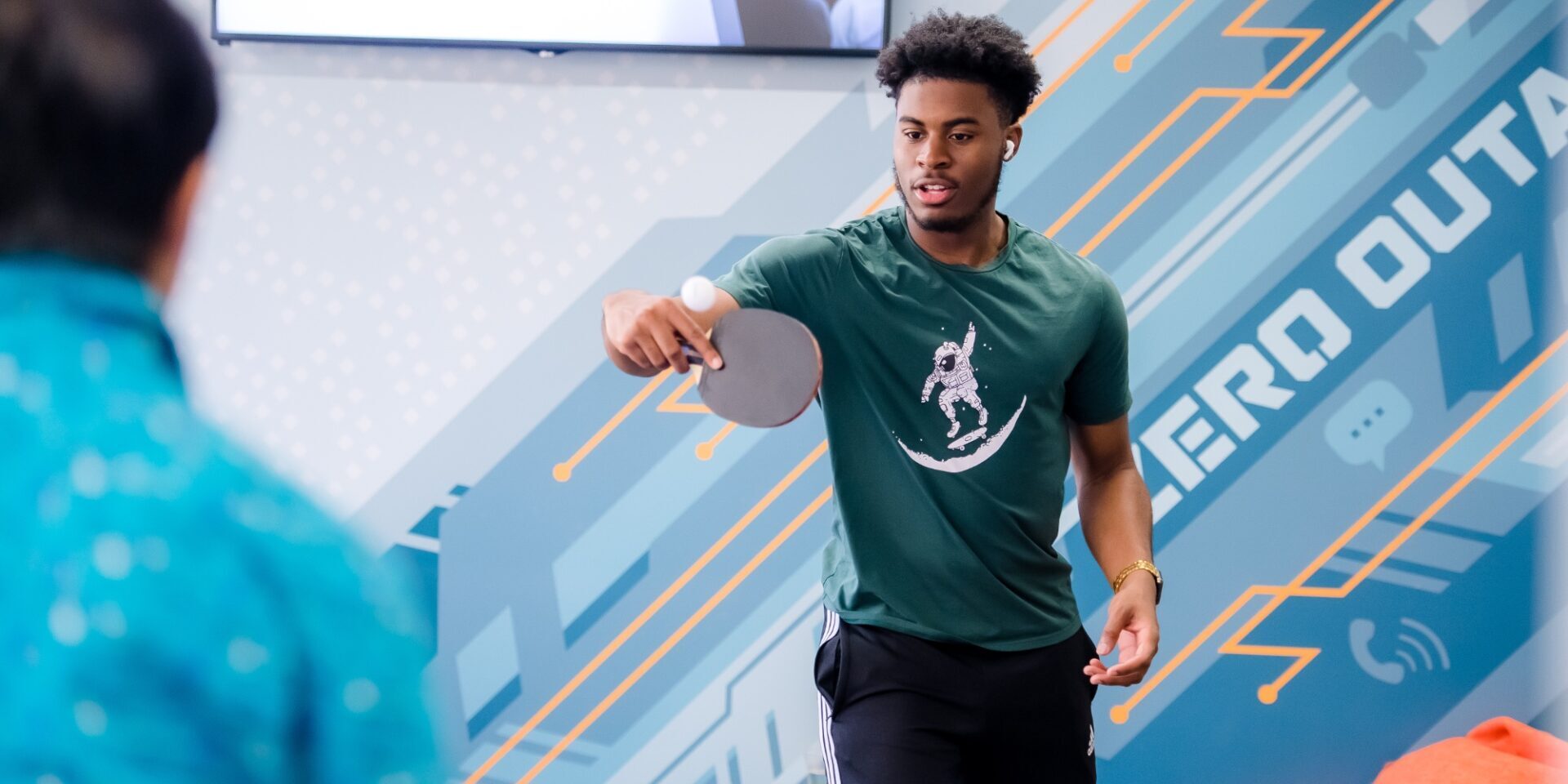Words to Describe Company Culture: Work Hard Play Hard
This ‘Work Hard, Play Hard’ post is part of our Words to Describe Company Culture series. Also check out our ‘We’re LIke a Family‘ and ‘Bring Your Whole Self to Work‘ posts for more examples of using employee stories to push past generic statements and corporate jargon.
‘Work hard, play hard’ often rolls off employees’ tongues when describing their organization’s fun side.
We get it: the sentiment is often about creating an environment where employees are encouraged to push their limits and excel in their roles, while also making sure they have the time, space, and opportunities to unwind and recharge.
But when hard work—and fun—can look so different at different companies, what does this phrase actually say to candidates?
What “Work Hard, Play Hard” Really Means
“Play hard,” in particular, can mean different things at different companies. Does the fun typically happen during work, or after hours? Are team members obligated to go, or do they choose to take part? Does it center around alcohol, or is the “play” more well-rounded?
To turn these jargon statements into real insight into your culture, you need employee stories that show what hard work and fun looks like in the workplace. Watch the video below for three unique examples that push past the platitudes.
Real Examples of Work Hard, Play Hard at Work
- How you invest in company culture
Whether it’s Pizza Fridays or annual incentive trips, how your company invests in company culture says a lot about what “fun” looks like at work. In the second clip, we hear from Eleven Peppers’ ‘Ambassador of Fun’ and how he helps nurture a caring and fun culture at the creative agency.
- Delivering the most exciting work of your career
If your company’s work follows a cycle—like quarterly sales goals or regular product launches—the “fun” may come from the excitement of seeing your hard work pay off. In the video’s first clip, several Demonware team members talk about spending 18 months building a new technology for a big game release…and the thrill of watching millions of players download it on launch day around the world.
- Forming meaningful relationships that last
“Work hard, play hard” goes beyond ping pong tables. At many companies, it reflects the strong bonds formed while working toward shared goals. In the video’s final clip, Rumela talks about the meaningful moment when former colleagues, some of whom had moved on to new jobs, came together to perform at her wedding. She explains how The Knot Worldwide’s culture helped her build these close relationships at work.

Employee Stories Address Negative Connotations of “Work Hard, Play Hard”
The phrase “work hard, play hard” can sometimes carry negative connotations, such as promoting burnout or creating an expectation of constant socializing after long workdays.
That’s why using employee stories to move beyond this platitude is so crucial. By sharing real examples of how “work hard, play hard” plays out at your company, you help candidates understand the balance between work and downtime. And it gives them a chance to opt-in or opt-out of that dynamic.
The three stories shared above show different ways “work hard, play hard” can look in practice. Not everyone wants to dance at their manager’s wedding, and that’s OK!

Move Past Platitudes: Questions to Ask to Get Great Stories
Testimonials and platitudes don’t paint a clear picture for candidates, but real stories do. If an employee you are interviewing says, “we work hard and play hard,” follow up with questions that dig deeper:
- Can you give me an example of a time when the team worked really hard on a project? What did that look like day-to-day?
- What kind of activities or events does the team do to “play hard”? Can you share a specific example?
- How does the company help employees recharge after a particularly demanding period of work?
- What’s the most memorable way your team celebrated after achieving a big goal or milestone?
- Can you share a story where the “work hard, play hard” mentality positively impacted team relationships or morale?
Use Photos to Bring these Stories to Life
Better b-roll makes for better videos. When candidates can see the story you’re telling, it’s so much easier for them to picture themselves at your company. Raise the bar in your next video by including personal photos from key moments in your storyteller’s lives. If you re-watch the video above, you’ll see several examples of this strategy in practice.
Move Past the Buzzwords
Generic statements like “work hard, play hard” can be said anywhere. When creating your next company culture video, aim to tell stories that only your employees can tell that set your culture apart.
Ready to capture stories that move beyond the buzzwords? Learn more about how we help companies create employee storytelling content that resonates with candidates.

